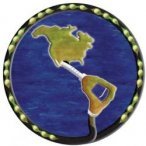English · Español

3 de julio de 2009 | Entrevistas | Soberanía Alimentaria
Common Thread
Hildebrando Vélez from Friends of the Earth explains the context of the expansion of agrofuel crops in Colombia
1:35 minutes
Descargar: MP3 (1.1 MB)
Sugarcane and African oil palm are the main crops used to produce agrofuels in Colombia. Together with tree monocultures, these crops occupy most of the arable land of the country. And their expansion to the expense of the intensive use of pesticides and the displacement of local communities is historically linked to the most reactionary political and economic interests of this country.
This is what Hildebrando Vélez, member of CENSAT-Agua Viva and a referent of the environmentalist federation Friends of the Earth International, explained, giving a context to the thirty members of the Verification Mission on Agrofuels in Colombia which will visit five regions in the next few days.
Vélez pointed out that although at first the promotion of agrofuels was based on the high price of oil and the apparent lack of energy alternatives, in Colombia there are many unexplored possibilities of renewable and sustainable energy.
The Colombian activist also described the close link between the companies in the agrofuel sector and the structures of political and paramilitary power, giving as an example the participation of current President Álvaro Uribe in the liquidation of a company some years ago, which today is fully focused on agrofuel production.
Hildebrando will also be apart of a Friends of the Earth International delegation to Honduras to reject the coup d’état and demand the immediate and unconditional return of the lawful authorities to Tegucigalpa.
Imagen: http://www.tribunadelbiobio.cl








